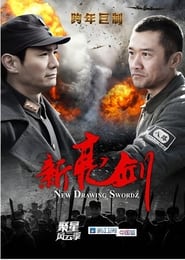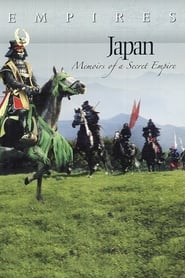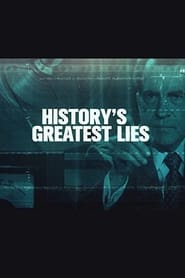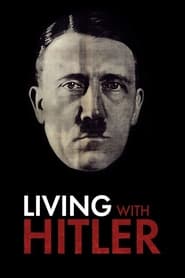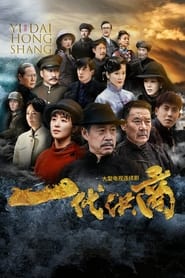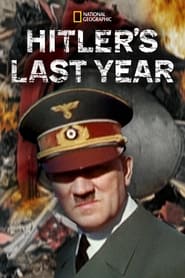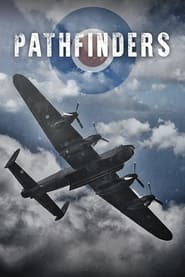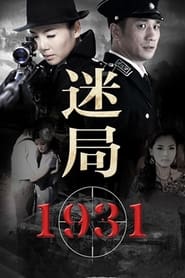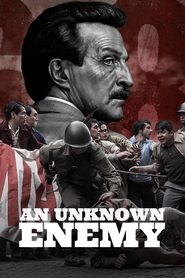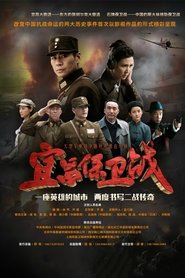War Politics TV Series - Page 47
-
新亮剑
2011
新亮剑
2011
-
Admiral
2009
Admiral
2009
star 5The story of admiral Aleksandr Kolchak who remained faithful to his oath to the Russian Emperor and fought against the Bolshevik rule after the 1917 October Revolution. -
Bonn
2023
Bonn
2023
star 7.8Bonn depicts the rise of the young West Germany, a country struggling to break free from the terrors and legacies of World War II and longing for a 'normal' life. Into this heady and volatile mix steps Toni, a young woman determined to seize every opportunity, overcome every obstacle and make her own way in what is still a very male-dominated society. But what at first appears to be only an entry-level office job at one of the country's two competing secret services soon sucks her ever deeper into a clandestine world of suspicion -
Japan: Memoirs of a Secret Empire
2004
star 9.5Commanding shoguns and samurai warriors, exotic geisha and exquisite artisans—all were part of the Japanese “renaissance”; a period between the 16th and 19th Centuries when Japan went from chaos and violence to a land of ritual refinement and peace. But stability came at a price: for nearly 250 years, Japan was a land closed to the Western world, ruled by the Shogun under his absolute power and control. Japan: Memoirs of a Secret Empire brings to life the unknown story of a mysterious empire, its relationship with the West, and the forging of a nation that would emerge as one of the most important countries in the world. -
The Politician's Husband
2013
star 6.8A drama about the shifting power in a marriage when the personal and political collide. -
History's Greatest Lies
0000
Often forgotten, and rarely punished, the lies of those in power always achieve their goals: THEY CHANGE THE COURSE OF HISTORY Who are the liars? Heads of state, politicians or military leaders, supported by their hierarchies. They have no qualms about lying to the radio, to television, to millions of people, end even, on oath, to the highest authorities and institutions. They use secret services, military strategy or communications agencies to make their lies more credible. The only motto is: «the bigger the lie, the more it will be believed!» In affairs of state, all and every means can be used to certify or conceal an operation. Lies are not just a matter of words, or of silence. They entail practical acts as well as technical support. Whole teams are sometimes necessary to construct believable illusions. In the service of a nation, lying just means reinventing the world. -
In the Shadows
2024
In the Shadows
2024
star 6.5César Casalonga wins a France presidential election primary for his party. But that victory was rigged. Helped by Paul Francoeur and Marylin, before the press or his opponents find out, César Casalonga must disentangle the conspiracy. -
Living with Hitler
2021
Living with Hitler
2021
star 8.8The Nazi era from 1993 to 1945 is illustrated through archived material, with insights and anecdotes provided by world-leading experts and commentators. -
The Grand Merchants
2022
The Grand Merchants
2022
-
The Crown of the Kings. The Jagiellons
2023
star 6.5The story of the Jagiellonian Dynasty rulling XV-century Kingdom of Poland and Grand Duchy of Lithuania. -
Hitler's Last Year
2015
Hitler's Last Year
2015
star 5.4The story of the last year of the war in Europe, from the D-Day landings in Normandy in June 1944 to the dual German surrender, first in Reims then Berlin, in May 1945. Eleven months of unprecedented combat.This was the deadliest year of WW2. -
A Very British Coup
1988
A Very British Coup
1988
star 7.8A Very British Coup is a British political thriller series based on the novel by Chris Mullin. It stars Ray McAnally as the newly elected left-wing prime minister Harry Perkins, who soon finds himself up to his neck in conspiracy. -
Pathfinders
1972
Pathfinders
1972
star 6During the second world war, the Pathfinder squadrons of RAF Bomber Command were the elite. All volunteers, their dangerous task was to fly in advance of bombing raids over occupied Europe and Nazi Germany and "light up" the target with flares and incendiaries. -
迷局1931
2013
迷局1931
2013
-
The Jewish Council
2024
The Jewish Council
2024
star 7.4In 1940s Amsterdam, Jewish Council co-chairman David Cohen and his daughter Virrie have their bond tested as they pursue increasingly opposing ways of safeguarding their community under Nazi rule. -
14: Diaries of the Great War
2014
star 7.6When war broke out in Europe in 1914, most people thought the conflict would be over by Christmas; they could not imagine how wrong they were. An attack in Sarajevo ended up becoming a snowball that swept the world: a new kind of warfare had begun, waged with techniques and means never seen before. By November 1918, ten million people had died and the political map of the planet had been redrawn. -
An Unknown Enemy
2018
An Unknown Enemy
2018
star 8Fernando Barrientos, Head of the National Security Directorate, Mexico's Secret Police, is trying to reach the highest position in the country. On his way, he'll have to manipulate, betray, and kill, and he's well prepared for it. However, his path will be full of obstacles. Nobody, not even his family, will be immune to the chaos left in his quest for total power. -
The First Days
2023
The First Days
2023
star 7.2A unique drama anthology series for our time, inspired by true events which happened in Kyiv in the first few weeks after the Russian invasion of Ukraine in February 2022. As the brutal war got underway, every second person left Kyiv. Yet every second person remained. These are their stories – variously moving, funny, sad, stark, unsettling, and uplifting. -
The Last Gateway of the Nation
2016
It tells the story of the war of resistance that occurred in Yichang from 1938 to 1943. (Source: DramaWiki)
